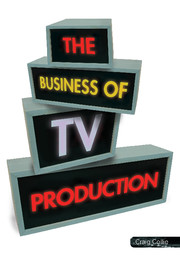Book contents
- Frontmatter
- Contents
- Preface
- Diagrams and tables
- Abbreviations
- Part A Opiate of the people: the television industry
- Part B Massage parlour: development and funding of a project
- Chapter 5 The concept
- Chapter 6 Development of the project
- Chapter 7 Approaches to genre development
- Chapter 8 The pursuit of funding
- Chapter 9 Management of a creative project
- Chapter 10 Multi-platform projects
- Chapter 11 Marketing and distribution
- Part C Riding the tiger: management of the production
- Part D A nod to the gatekeepers: the environment of television
- Index
- References
Chapter 9 - Management of a creative project
Published online by Cambridge University Press: 05 June 2012
- Frontmatter
- Contents
- Preface
- Diagrams and tables
- Abbreviations
- Part A Opiate of the people: the television industry
- Part B Massage parlour: development and funding of a project
- Chapter 5 The concept
- Chapter 6 Development of the project
- Chapter 7 Approaches to genre development
- Chapter 8 The pursuit of funding
- Chapter 9 Management of a creative project
- Chapter 10 Multi-platform projects
- Chapter 11 Marketing and distribution
- Part C Riding the tiger: management of the production
- Part D A nod to the gatekeepers: the environment of television
- Index
- References
Summary
As noted in Chapter 5, a producer of a television program is more than a person to keep tabs on resources and budget. Television production is an exercise in project management and this requires, among other things, people management skills. The people that have to be managed sometimes have idiosyncratic personalities. Massive egos can come into play. The television production pathway may sometimes resemble a manufacturing production line, but these are not process-line workers to be managed in a disciplined regimen of ‘carrot and stick’, even though the occasional subtle use of both carrot and stick might sometimes be a useful strategy. These are (hopefully) gifted professional people and among the tasks in the producer's leadership of the creative team is encouragement of them and providing the environment that allows them to produce their creative best. A good producer may draw more out of the individuals in the team than those people thought they had to contribute, with a combination of encouragement, cajoling, flattery and insistence at different times.
This chapter looks at the personal qualities that contribute to the making of a good producer and how they are exercised in the leadership and management of a creative team. They are relevant not only to interactions with members of the production team, but also with the people that producers deal with on behalf of the team – broadcasters, investors, potential contributors to the program, to name just a few.
- Type
- Chapter
- Information
- The Business of TV Production , pp. 158 - 171Publisher: Cambridge University PressPrint publication year: 2007



